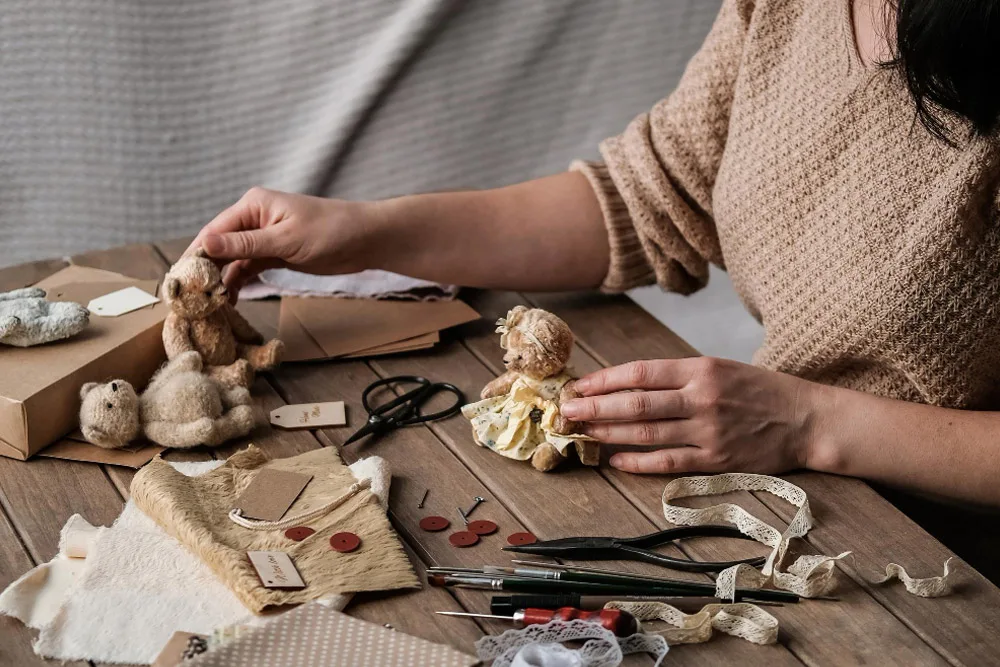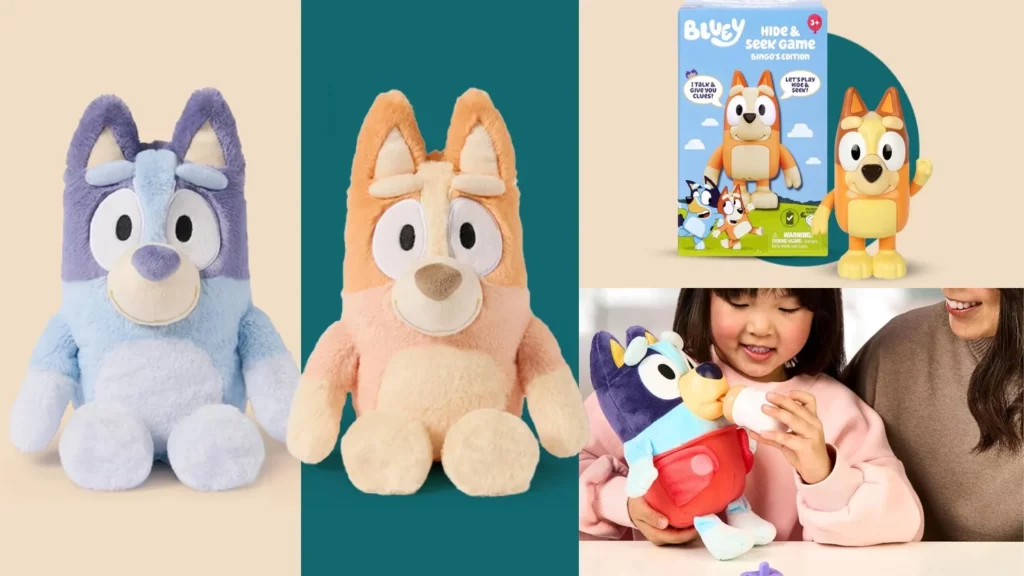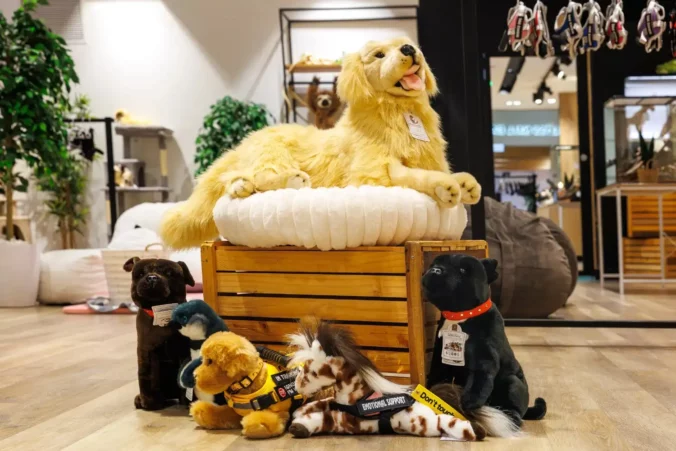How Do Custom Stuffed Animals Build Emotional Brand Connections for Australian Companies?
Custom stuffed animals are promotional products that feature company logos, mascots, or personalized messages. They create lasting impressions on customers and are physical items that people can hold onto. These plush toys turn regular marketing into unforgettable brand experiences. Recipients keep them for years as desk companions, car mascots, or beloved keepsakes.
Emotional branding is a strategy that focuses on creating psychological connections between consumers and companies. Instead of solely relying on product features, it appeals to feelings and emotions. When Australian companies incorporate custom stuffed animals into their marketing strategies, they tap into powerful emotional triggers that traditional advertising cannot replicate.
Why Custom Stuffed Animals Work
The competitive Australian market requires businesses to go beyond just making transactions. Companies in cities like Sydney, Melbourne, Brisbane, and Perth are under increasing pressure to stand out by engaging with customers in meaningful ways. Custom plush toys help address this challenge by:
- Creating physical touchpoints that customers interact with daily
- Triggering positive associations through tactile and visual appeal
- Building trust through consistent brand presence in personal spaces
The Value of Authenticity
Australian consumers increasingly value authenticity and personal connection with brands. Custom stuffed animals deliver both by serving as constant reminders of positive brand experiences. Unlike disposable promotional materials, these durable items maintain their appearance and emotional impact over extended periods, strengthening customer loyalty and encouraging repeat business through sustained emotional resonance.
Why Custom Stuffed Animals Are Powerful Tools for Emotional Branding
Custom stuffed animals are effective tools for emotional branding due to several key factors:
1. Sensory Engagement
Custom stuffed animals trigger sensory engagement through their soft textures and vibrant colors, creating immediate physical and emotional responses. The tactile experience of holding a plush toy releases oxytocin, the bonding hormone, while visual appeal captures attention and creates memorable brand impressions.
2. Nostalgia Marketing
Nostalgia marketing forms the foundation of their effectiveness. Adults instinctively associate stuffed animals with childhood comfort and security, emotions that transfer directly to the brand offering them. This psychological connection runs deeper than rational decision-making, embedding brands into customers’ emotional memory banks. A Melbourne healthcare provider distributing custom koala plushies taps into both national identity and childhood warmth simultaneously.
3. Personalization
The power of personalization transforms generic promotional items into meaningful keepsakes. When a Sydney school creates mascot plushies featuring student artwork or a Brisbane charity designs bears with donor names, recipients perceive these items as unique treasures rather than mass-produced merchandise. This customization establishes personal relevance that strengthens brand affinity.
4. Emotional Branding Through Customization
Custom plush toys combine three critical elements:
- Physical comfort that encourages repeated interaction
- Emotional resonance through nostalgic associations
- Individual significance via tailored design elements
These factors work together to create lasting impressions that traditional advertising cannot replicate, positioning brands within customers’ personal spaces and daily routines. The power of such customization in emotional branding is profound, making custom stuffed animals an invaluable asset for businesses aiming to establish a strong emotional connection with their customers.
How Do Australian Companies Use Custom Stuffed Animals in Different Industries?
Australian businesses use custom stuffed animals for specific reasons in various industries, creating emotional connections that resonate with their target audiences.
1. Educational Institutions
Schools and universities give out branded plush toys during orientation weeks and fundraising events. This helps students and families quickly connect with the school’s values. In Sydney and Melbourne, universities often have koala or kangaroo mascots dressed in their colors, turning these toys into collectible symbols of school pride that alumni cherish for years. Such strategies are part of a larger trend where educational institutions leverage unique marketing tools to enhance their brand visibility and foster a sense of belonging among students.
2. Healthcare Organizations
Hospitals and healthcare facilities use soft, comforting plush toys to calm patients and create positive associations with medical experiences. Children’s hospitals in Brisbane and Perth provide custom teddy bears during procedures, while aged care facilities gift personalized companions that offer emotional support to residents. These uses show how different industries use custom stuffed animals to address psychological needs beyond just brand recognition.
3. Charitable Organizations
Nonprofits design plush toys that represent their mission, selling them as fundraising merchandise or giving them to donors as tokens of appreciation. Wildlife conservation groups make replicas of endangered species, while community support charities create characters that symbolize hope and resilience.
Each industry customizes designs to reflect its values: schools focus on tradition and achievement, healthcare emphasizes comfort and trust, charities convey purpose and impact. This thoughtful customization ensures the plush toys genuinely represent each organization’s identity while fulfilling the emotional needs of recipients. For instance, the use of grammar in action can be seen in how these organizations communicate their messages through the design and branding of these stuffed animals.

Why Does Personalization Enhance Customer Loyalty and Brand Affinity?
Personalization turns generic promotional items into meaningful keepsakes that customers truly appreciate. When Australian companies include unique features such as a customer’s name, special dates, or personalized messages on plush toys, recipients feel a sense of ownership that cannot be replicated by generic merchandise. This exclusivity makes customers feel recognized as individuals rather than faceless consumers.
How Custom Stuffed Animals Build Emotional Brand Connections for Australian Companies becomes clear when logos and messages are personalized on these tactile products. A healthcare provider might embroider a patient’s name alongside their logo on a comfort bear, creating dual associations between the brand and personal care. Schools often add student names or graduation years to mascot plushies, turning them into cherished mementos that families display for years.
The benefits of personalization in marketing go beyond the initial impact. Recipients develop stronger emotional connections to items with their personal details, resulting in:
- Extended lifespan of products as desk companions or car mascots
- Increased brand recall through daily visual exposure
- Higher likelihood of social media sharing when items feel one-of-a-kind
- Deeper trust in brands that prioritize individual recognition
Custom features serve as conversation starters, encouraging recipients to share the story behind their personalized plush toy with friends and family, naturally expanding brand reach through genuine personal narratives.
How Do Custom Stuffed Animals Compare to Traditional Promotional Materials?
Custom plush toys outlast paper-based marketing materials by years, maintaining their visual appeal while flyers fade and digital ads disappear from feeds. A branded stuffed animal sits on a desk or car dashboard for months or even years, creating thousands of brand impressions without additional investment.
The Limitations of Traditional Promotional Products
Traditional promotional products comparison reveals stark differences in engagement duration:
- Digital advertisements require continuous spending to remain visible.
- Printed materials typically end up in recycling bins within days.
In contrast, custom stuffed animals become part of customers’ daily environments, whether displayed at home, in offices, or given as gifts to family members.
Building Trust through Physical Presence
Physical presence builds trust through repeated exposure:
- Plush toys create visual touchpoints that reinforce brand recognition naturally.
- Tactile interaction strengthens memory formation compared to passive viewing.
- Recipients develop emotional attachments that extend beyond transactional relationships.
The longevity factor transforms these items into relationship-building tools rather than one-time advertisements. Each time someone interacts with their custom plush toy, they reconnect with the brand’s values and messaging. This sustained visibility proves particularly valuable for Australian companies competing in saturated markets where standing out requires more than temporary attention.
The Lasting Impact of Custom Stuffed Animals
Digital campaigns measure success in clicks and impressions, but custom stuffed animals generate ongoing brand awareness that compounds over time. The physical nature of plush toys creates a permanence that digital content cannot replicate, establishing deeper roots in customer consciousness.
What Cultural Factors Influence the Appeal of Custom Plush Toys Among Australian Consumers?
Cultural alignment with custom stuffed animals in Australia stems from deeply held values around authenticity and environmental responsibility. Australian consumers increasingly prioritize products that reflect genuine connections rather than superficial marketing tactics, making personalized plush toys particularly effective when they tell meaningful brand stories.
The sustainability movement shapes purchasing decisions across demographics. Australians expect brands to demonstrate environmental consciousness through:
- Eco-friendly materials like organic cotton or recycled polyester filling
- Local production partnerships that reduce carbon footprints
- Long-lasting quality that counters throwaway culture
- Transparent sourcing of materials and manufacturing processes
Custom stuffed animals align with the Australian preference for products carrying emotional significance beyond their physical form. These items become memory keepers—commemorating school milestones, charity events, or healthcare journeys—which resonates with a culture that values community participation and shared experiences.
The “mateship” ethos influences how Australians perceive branded merchandise. Plush toys that celebrate local wildlife, regional identities, or community achievements create stronger bonds than generic promotional items. A koala mascot for a Sydney environmental charity or a kangaroo representing a Melbourne sports program taps into national pride while maintaining personal relevance.
Regional diversity across Australian cities demands customization that acknowledges local character, from coastal themes in Gold Coast campaigns to outback-inspired designs for Darwin initiatives.
See Also : Design Trends Shaping Custom Acrylic Keychains in Australia This Year
What Are the Challenges Australian Companies Face When Using Custom Stuffed Animals?
Marketing challenges with custom plush toys
Marketing challenges with custom plush toys center on managing the delicate balance between personalization depth and financial viability. Australian businesses often struggle with minimum order quantities that can range from 100 to 500 units, making small-scale campaigns or niche targeting financially prohibitive for startups and smaller organizations.
Production costs escalate quickly
Production costs escalate quickly when companies add multiple customization layers. A basic branded plush toy might cost $8-12 per unit, but adding embroidered logos, unique color schemes, or specialized accessories can push prices to $20-30 per item. This pricing structure forces businesses to choose between offering truly distinctive products and maintaining reasonable marketing budgets.
How Custom Stuffed Animals Build Emotional Brand Connections for Australian Companies depends on consistent quality, yet scalability creates complications. Ordering 200 units allows for careful quality control, but scaling to 5,000 units for a national campaign introduces variables:
- Manufacturing timeline extensions from 4-6 weeks to 12-16 weeks
- Quality inconsistencies across different production batches
- Storage and inventory management costs for excess stock
- Design modifications becoming expensive mid-production
Australian companies also face the challenge of maintaining brand consistency when working with overseas manufacturers. Time zone differences, communication barriers, and varying quality standards can result in products that don’t match initial specifications, potentially damaging the emotional connections these items are meant to create.

How Do Custom Stuffed Animals Drive Organic Growth Through Customer Advocacy?
Custom stuffed animals turn happy customers into brand advocates who naturally share their positive experiences with friends, family, and social networks. The emotional connection formed with these tangible keepsakes creates genuine enthusiasm that leads to unprompted recommendations and social media posts featuring the plush toys in everyday situations.
1. Organic Growth Through Visible Placements
Organic growth driven by customer advocacy through custom stuffed animals occurs when recipients display their plush companions prominently—on office desks, car dashboards, or children’s bedrooms—sparking conversations about the brand behind them. These visible placements generate curiosity and questions from others, creating natural opportunities for brand storytelling without paid advertising.
2. The Power of Peer Recommendations in Australia
Australian consumers particularly value peer recommendations, with studies showing they trust personal referrals significantly more than corporate messaging. When a child carries a custom mascot to school or a healthcare worker displays a branded plush at their station, these moments create multiple touchpoints with potential customers who witness the emotional attachment firsthand. This aligns with findings from recent research on the impact of digital platforms on consumer behavior, which indicates that personal experiences shared online can greatly influence purchasing decisions.
3. Amplifying Advocacy Through Social Media
Social media amplifies this advocacy effect exponentially. Recipients photograph their custom stuffed animals in creative scenarios, tag the brand, and share stories about what the plush represents to them. Each post reaches networks of friends and followers who perceive these endorsements as genuine rather than promotional, building credibility and interest among audiences who might never have encountered traditional advertising campaigns. Such organic promotion is further enhanced by the influence of peer recommendations on social media platforms, where users are more likely to trust and act upon suggestions from their peers over brands themselves.
Conclusion
Custom stuffed animals build emotional brand connections for Australian companies by transforming standard marketing into meaningful relationships. Unlike traditional promotional materials, these plush companions deliver strategic value through tactile engagement, personalization, and nostalgic appeal.
Australian businesses in competitive markets from Sydney to Perth gain measurable advantages such as sustained brand visibility, customer advocacy that drives organic growth, and loyalty built on genuine emotional resonance. The investment in custom stuffed animals pays off through their durability, shareability, and ability to turn customers into brand ambassadors who actively recommend businesses within their communities.

Leave a Reply